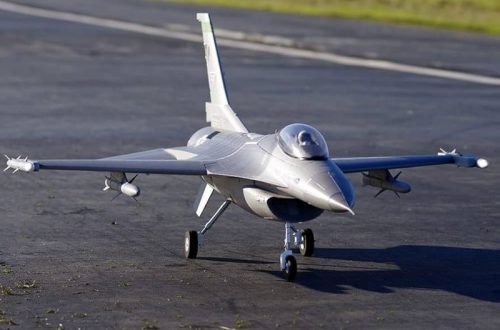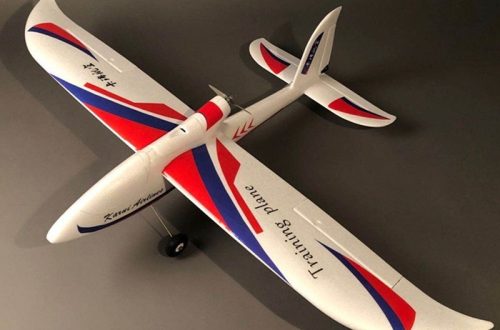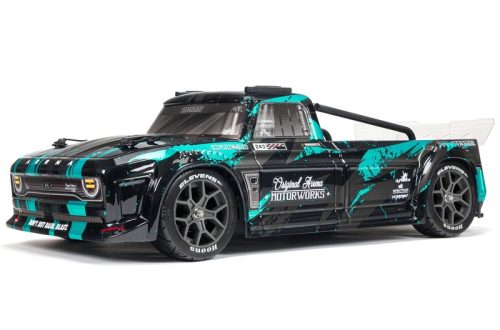Introduction to RC Car Scales
RC car scales explain the size of a model relative to the real vehicle. Understanding them is key to choosing the right RC car. Scale size impacts where you can drive and how it handles.
RC car sizes range from small indoor models to big, outdoor monsters. They come in many scales, often noted as a ratio like 1/24 or 1/10. This ratio tells you how many times smaller the RC car is than the actual car.
For example, a 1/10 scale RC car is ten times smaller than its real-life version. A bigger scale number means a smaller model. So, a 1/24 scale RC car is smaller than a 1/10 scale RC car.
The size of RC cars also affects how they perform. Smaller scales may work better indoors or on smooth surfaces. Larger scales, like 1/5, may handle off-road conditions well.
RC car scales guide you when it comes to space needed, detail, customization, and cost. It is vital for a good fit with your interest, whether racing, collecting, or casual driving.
Choose your RC car scale wisely to ensure a great experience. Think about where you’ll use it, your budget, and what you enjoy doing.
The Significance of Scale: Impact on Performance and Experience
Choosing the right RC car scale is more than just a size preference. It directly affects your RC’s performance and your driving experience. Let’s explore how different scales impact these two critical aspects.
Performance
RC car scales can determine how your vehicle handles. Smaller-scale RC cars, like 1/24 or 1/18, usually perform better indoors or on smooth surfaces due to their compact size. They tend to be more agile, making them great for tight spaces but less so for rough terrain. On the other hand, larger scales, such as 1/8 or 1/5, shine in outdoor, off-road environments. Their bulk allows them to tackle rough patches and obstacles with ease, offering a more robust and thrilling ride.
Experience
The scale of your RC car also shapes your user experience. Are you looking for intricate detail and the option to customize? A 1/10 scale might be a perfect choice, as this size offers a great balance of detail and space for personal touches without being overwhelming. Alternatively, if you’re after the raw excitement of driving a large, powerful model, a 1/5 scale provides an unmatched feeling of controlling a mini-behemoth that replicates the power and presence of a full-sized vehicle.
In summary, the scale of your RC car plays a huge role in how it performs and how much enjoyment you’ll get from it. Weigh the importance of agility versus power, indoor versus outdoor use, and the level of detail you’re hoping for when selecting your scale. The right scale can elevate your RC experience significantly.
Comparing Popular RC Car Scales
When exploring the world of RC cars, scale sizes stand out as a pivotal factor.
The Compact Thrill: 1/24 to 1/18 Scale RC Cars
1/24 to 1/18 scale RC cars are tiny but mighty. They are ideal for indoor play. Think of them as the perfect starting point for young enthusiasts.
- Size: They range from 4 to 10 inches in length.
- Use: Great for tight spaces and smooth surfaces.
- Cost: These are the most affordable, perfect for testing the waters in RC.
The Balance of Size and Performance: 1/16 to 1/14 Scale RC Cars
1/16 to 1/14 RC cars strike a strong balance. They offer enhanced performance in a still-compact form.
- Size: Expect 9 to 15 inches long.
- Performance: They provide good speed and handling, suitable for varied environments.
- Portability: These cars are easy to carry and store.
The Hobbyist’s Choice: 1/10 Scale RC Cars
The 1/10 scale is the go-to for many hobbyists. It offers detailed models and space for customization.
- Size: Typically 17 to 22 inches in length.
- Detailing: These models feature intricate designs and realistic features.
- Versatility: Perfect for both in and outdoors, with parts widely available.
Off-Road Dominance: 1/8 Scale RC Cars
1/8 scale RC cars are built for the rough terrain. Their size and power make them a favorite for off-road.
- Size: They measure from 19 to 24 inches long.
- Power: Built for tackling uneven surfaces with ease.
- Experience: Offers an intense driving encounter, with a heavy build.
The Large and in Charge: 1/5 Scale RC Monsters
1/5 scale RC cars are the giants. These models provide a commanding presence and top-tier performance.
- Size: Up to 3 feet in length, they are the largest in the RC car family.
- Presence: Their size mirrors the experience of driving real-life vehicles.
- Terrain: No terrain is too challenging for these beasts to handle.
Selecting the right scale is a mix of evaluating space, budget, detail preference, and performance desires. Each scale offers a unique RC experience, catering to various enthusiast levels.
Factors to Consider When Selecting an RC Car Scale
Choosing the right RC car scale is crucial. It impacts your driving fun and the car’s performance. Let’s look at key factors.
Driving Environment and Space Considerations
Your driving space matters when picking an RC car size. Big scales need more room. Think about where you’ll drive. Indoors or out? Smooth tracks or rough terrain? Larger RC cars, 1/5 or 1/8 scales, love the outdoors. They handle rough surfaces well. Smaller cars, like 1/18 or 1/24, are best for indoors.
Detailing and Customization Options
Want a car that looks real or to add your own flair? Larger scales offer this. A 1/10 scale car has space for details and custom parts. Smaller scales are less detailed, but still fun.
Budget and Cost of Ownership
Cost is a big factor. Larger RC cars often cost more. They can need more upkeep too. Consider your budget. How much do you want to spend? Don’t forget ongoing costs like repairs and upgrades.
Experience Level and Usage Purpose
Are you new to RC cars or an expert? Beginners might want a smaller, simpler car. It’s easier to control and less costly. Experienced drivers might prefer larger scales for more challenge and options.
Maintenance and Upgrades: Keeping Your RC Car in Top Shape
Regular maintenance is key to getting the best from your RC car. Here’s what to focus on:
Regular Cleaning
- After every run, remove dirt and debris.
- Use a soft brush or compressed air.
- Check for worn parts during cleaning.
Battery Care
- Charge batteries properly and store them safely.
- Avoid overcharging or deep discharge.
Tire and Wheel Maintenance
- Inspect tires for wear and replace if needed.
- Make sure wheels are tight and aligned.
Motor and Gearbox Check
- Clean and lubricate gears regularly.
- Inspect the motor for signs of damage.
Update and Customize
- Upgrade parts for better performance or looks.
- Choose compatible upgrades for your car’s scale size.
Expert Help
- Rely on manuals and online forums for guidance.
- Visit local shops for advice or repairs.
Keep on top of maintenance, and your RC car will run smoothly. This ensures a long-lasting and enjoyable hobby.
Where to Buy and What to Expect: A Purchasing Guide for Different Scales
When you’re ready to buy an RC car, where you shop matters as much as what you buy. Different scales come with different expectations regarding performance, detailing, and price. Here’s what you should consider when making a purchase.
1/5 Scale RC Monsters
Where to Buy: Specialized hobby stores or online retailers that focus on large-scale RC models.
What to Expect: High cost, impressive detail, powerful performance. Ideal for outdoor use with ample space.
1/8 Scale RC Cars
Where to Buy: Hobby shops and online stores with a good range of RC vehicles.
What to Expect: Durable for tough terrain, moderately priced, requires larger areas to enjoy.
The Hobbyist’s Choice: 1/10 Scale RC Cars
Where to Buy: Most hobby shops and a variety of online retailers.
What to Expect: Balance of performance and price, widely available parts, good for both beginners and experienced users.
1/16 to 1/14 Scale RC Cars
Where to Buy: Online stores, local hobby shops, and sometimes larger retailers.
What to Expect: More affordable, easy to handle and transport, versatile for indoor and outdoor use.
The Compact Thrill: 1/24 to 1/18 Scale RC Cars
Where to Buy: Toy stores, online marketplaces, and hobby retailers.
What to Expect: Lower cost, great for indoor fun, limited detail, and customization.
When purchasing, always check the RC car sizes to ensure it fits your intended use. Budget beforehand for not just the car but also any necessary accessories or upgrades. Consider reading reviews and asking for recommendations to find quality models. And remember, the larger the scale, the more room you’ll need to drive and store your RC car.
Conclusion: Making an Informed Choice in the World of RC Cars
Navigating the world of RC cars involves considering scale sizes. As we’ve learned, each scale is suitable for different environments and offers various levels of detail and performance.
When choosing, think about the driving space and terrain. Bigger RC cars demand more room. They thrive outdoors where they can flex their power. Smaller models are best for indoor fun, especially if space is tight.
Detail lovers might favor larger scales like 1/10 for their customization capacity. Those looking for low-cost fun might choose smaller scales like 1/24 or 1/18.
Your experience level matters, too. Beginners may enjoy the simplicity of small scales. Seasoned hobbyists could prefer larger, more complex models.
Remember, the cost includes more than the initial buy. It covers ongoing maintenance and potential upgrades. Set your budget with this in mind.
When you’re set to buy, shop with care. Check sizes to fit your use and read reviews when you can. Ask hobbyists for tips on picking the right model.
By understanding RC car scales, detailing needs, your space, and budget, you will make a smart choice. Take time, do your research, and get ready for the excitement. Whether you’re racing, collecting, or just cruising around, the right RC car can bring endless joy.





